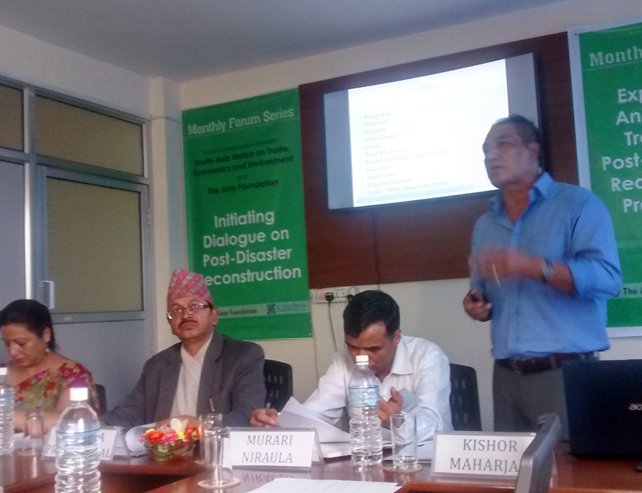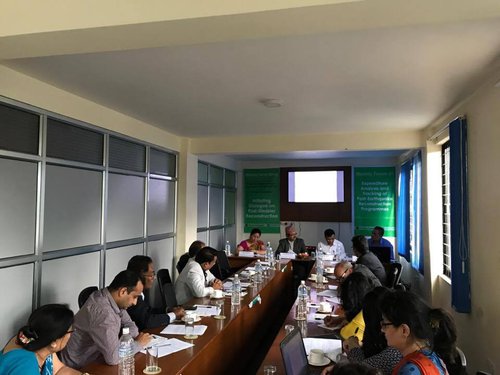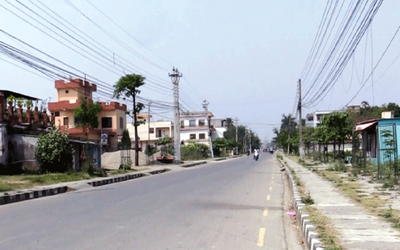
South Asia Watch on Trade, Economics and Environment (SAWTEE) organized a discussion titled ‘Expenditure Analysis and Tracking of Post-Earthquake reconstruction programs’.
“This is the third forum under the project ‘Initiating dialogue on Post Disaster Reconstruction Experience’ undertaken by SAWTEE with support from The Asia Foundation (TAF),” said a press release issued by SAWTEE.
Making his presentation on the topic, Kishor
Maharjan, Assistant Professor, Faculty of Management, Tribhuvan University,
pointed out that the government resource allocation for reconstruction has
increased phenomenally in the past two years but the rate of expenditure is
poor. Due to a lack of trained human resources and cumbersome procedures
related to grant distribution, among other factors, there has been a low
disbursement of housing grants. The beneficiaries would benefit from a waiver
of the fee for initial design approval, which comes around Rs 30,000, and is
difficult for many poor people to afford, he added.
Referring to the dismal rate of receipt of the second tranche of the housing reconstruction grant, Murari Niraula, Member Secretary, Public Expenditure and Financial Accountability (PEFA) Secretariat under Ministry of Finance, said it is necessary to find out whether the beneficiaries that have received the first tranche spent the money on consumption or on laying the foundations of their house.
“If we can track the bank accounts of the beneficiaries who have yet to start construction to see whether the money is still in the account, then we can infer that the procedures related to the fund allocation are indeed a problem,” he added. Regarding delayed reconstruction of public buildings such as schools and health posts, he pointed out that many foreign donors did not deliver the pledged amount.
Another discussant of the program, Padmini Pradhananga, General Secretary at the Transparency International, said that very few houses have been reconstructed and there has been a shortage of labor and engineers to carry out the reconstruction work. She also pointed out the low disbursement of the second tranche of housing grants was only to be expected as there were many cases of fraudulent and duplicitous registration.
Making his closing remarks as the Chair of the program, Rajendra Prasad Nepal, Financial Comptroller General, Government of Nepal, said that the government is vigilantly tracking the distribution process and rectifying problems whenever necessary.
According to a press release issued by SAWTEE, some 30 participants from various organizations, including research institutions, experts, activists and development partners, participated in the event.
Themes such as “Nepal Post Disaster Reconstruction Experience: Current Status and Lessons learnt” and “Migration and Labour Dynamics in Post Disaster Nepal” have already been covered in similar previous events.
- TANAHU HYDROPOWER PROEJCT: A Significant Achievement
- Apr 15, 2024
- AMBASSADOR HANAN GODAR: Sharing Pain With A Nepali Family
- Mar 30, 2024
- VISIT OF KfW AND EIB TO NEPAL : Mission Matters
- Mar 25, 2024
- NEPAL BRITAIN SOCIETY: Pratima Pande's Leadership
- Mar 24, 2024
- NEPAL ARMY DAY: Time To Recall Glory
- Mar 15, 2024
















